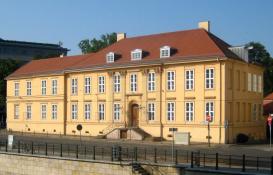My current research is part of a project in which I study the historical relation between the humanities (Geisteswissenschaften) and the sciences (Naturwissenschaften) in nineteenth-century Germany. I do so following the historical trajectories of concepts, methods, and epistemic virtues that were fundamental in both realms of knowledge.
Previously, I studied the various interpretations and uses of the concept of “fact” in German physics and historiography. Currently, I study contexts of practice-oriented, specialized training at German universities in the mid-nineteenth century (including, for example, seminars and Übungen). Often, the very same epistemic virtues were emphasized in relation to the training of scientists and humanists. But what did epistemic virtues like “objectivity” and “exactitude” precisely mean in different disciplinary contexts? And how can the differences and similarities be explained?
In order to answer these questions, I study such forms and ideals of practical training in different disciplinary settings in mid-nineteenth-century Berlin. For instance, I compare the private exercises organized by the physicist Gustav Magnus, the historian Leopold Ranke, and the mathematician Gustav Lejeune Dirichlet.

